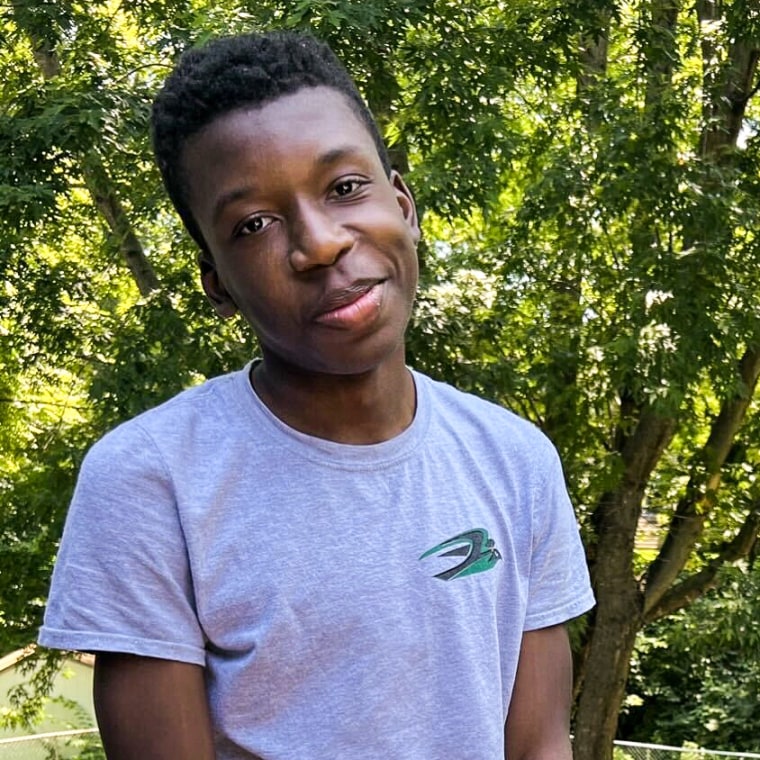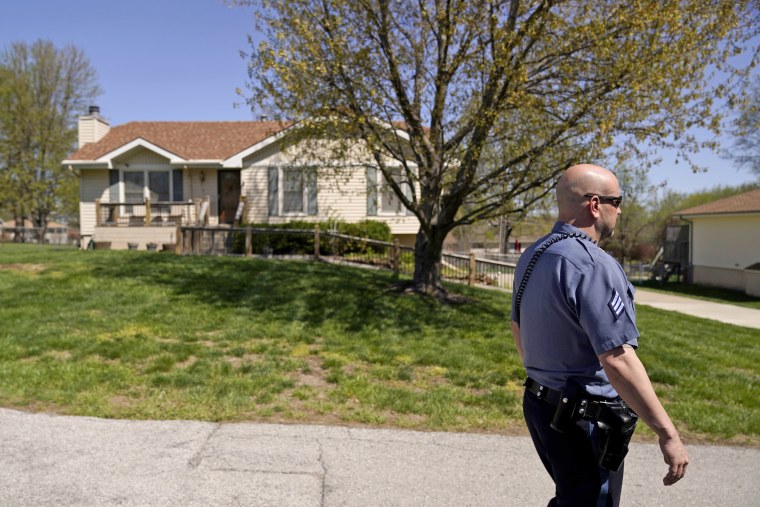Is Missouri’s "stand your ground" law applicable in last week’s shooting of a teenage Black boy who knocked on a white man’s door by mistake?
Andrew Lester, 84, was charged Monday with two felony counts of first degree assault and armed criminal action after shooting 16-year-old Ralph Yarl, a high school student who rang his doorbell by accident, Clay County Prosecuting Attorney Zachary Thompson said at a news conference. Thompson said the shooting had a “racial component.”
In the aftermath of the shooting in North Kansas City, a growing number of Yarl’s supporters expressed concern that the gunman would be protected by the 2016 Missouri law, in which a would-be shooter defending life or property does not have to retreat before taking violent action.
“As a mother of four, I’m completely distraught at the possibility that I could send my child to play with a friend next door and something could happen and that child would suffer instead of holding the adult accountable for their actions,” said Jalisa Davis, an organizer with Decarcerate KC, one of several grassroots groups supporting Yarl and demanding accountability.
“It’s very sad that we live in a world that would function that way,” Davis said.
During the news conference, Thompson cited the law but did not give an opinion on whether it might apply in this case. Earlier in the week, Kansas City Police Chief Stacey Graves said investigators would consider whether Lester was justified under the "stand your ground" law, according to the Kansas City Star.
Yarl was trying to pick up his siblings around 9:45 p.m. Thursday when he mistook the Northeast 115th Street home for one a block over on Northeast 115th Terrace, police said. Yarl told them he rang the doorbell and noticed the owner took longer than expected to answer, according to one of the family’s attorneys, Lee Merritt. Merritt said the man eventually opened the door and said “Don’t come back around here” before shooting Yarl. (Lester told police no words were exchanged during the incident, according to the probable cause statement.) Witnesses told police they saw Yarl knocking on neighbors’ doors for help, according to the statement. James Lynch, who lives nearby, soon ran out to help.
Yarl had not gone into the home before allegedly being shot through a glass door, according to the probable cause statement.
The teen was taken to the hospital. Lester was initially taken into custody and released within 24 hours per Missouri law, which states that felony suspects can only be held up to 24 hours until charges are filed. Civil rights attorneys Ben Crump and Merritt, both representing Yarl and his family, condemned Lester’s initial release from police custody in a statement early on Monday. When the felony charges were filed, an arrest warrant was issued for Lester, who surrendered himself on Tuesday afternoon, according to the Clay County Sheriff’s Office.
Attorney Bill Tackett, who has worked in Missouri for nearly 40 years, said it seems unlikely the homeowner will be able to effectively use "stand your ground" as a defense. Tackett said it would only apply if Yarl threatened the man’s safety. He also acknowledged the state’s “castle doctrine,” which gives residents the right to defend themselves with force while inside their home.
“Castle doctrine doesn’t apply unless he’s an intruder. And there’s no 'stand your ground' because there’s no threat,” Tackett said of Yarl, adding that Yarl could be classified as a trespasser but, still, shooting a trespasser would result in criminal charges.

“These doctrines don’t apply to someone who’s nonthreatening, knocking on the door on the stoop of a house. Otherwise, that means anybody who comes to your door, you can put a bullet in their head and it’s OK. You can’t do that.”
The state’s "stand your ground" law has been shrouded in controversy since it was passed in 2016. The law was part of a wide-ranging gun bill that also allowed people to carry concealed weapons without obtaining a permit. Missouri has seen a drastic rise in gun deaths since adopting the law, according to a February 2022 study published in the journal JAMA Network Open. “These findings suggest that adoption of SYG laws across the US was associated with increases in violent deaths, deaths that could potentially have been avoided,” the researchers concluded.
Lester told police he shot Yarl because he thought the teen was trying to break in, according to a probable cause statement from a Kansas City Police Department detective. But NBC News legal analyst Danny Cevallos estimated that defense wouldn’t hold up — neither would the "stand your ground" law nor castle doctrine — because Yarl rang Lester’s doorbell.
“Burglars don’t ring doorbells,” Cevallos said. “This all comes down to defense of property, the only thing that could apply is he thought someone was breaking into his occupied dwelling. Then you can use deadly force. He rang the doorbell, that’s evidence he wasn’t trying to break in. The doorbell is very bad for the defendant here.”
Florida established the first "stand your ground" law in 2005 and at least 28 states and Puerto Rico have established statutes or legal precedents for the law in the 18 years since, according to the National Conference of State Legislatures. Some of the laws come with looser gun rules. The proliferation of "stand your ground" laws — sometimes called “shoot first” laws — is closely linked to the National Rifle Association, which has long pressured states to adopt the laws and expand the constitutional right to self protection. Along with being linked to more firearm homicides, critics hold that the laws encourage racist vigilantism. The laws have been at the center of high profile racial violence cases like the shootings of Trayvon Martin, Jordan Davis, Markeis McGlockton and many others.
News of the shooting spread across social media over the weekend and, on Sunday, protesters marched toward the shooter’s home chanting: “What do we want? Justice. When do we want it? Now.”
“It’s really telling that organizations and community members have been able to rally behind this issue,” Amaia Cook of Decarcerate KC said. “There’s been a community response. Everybody is disheartened and outraged over this horrific incident.”

